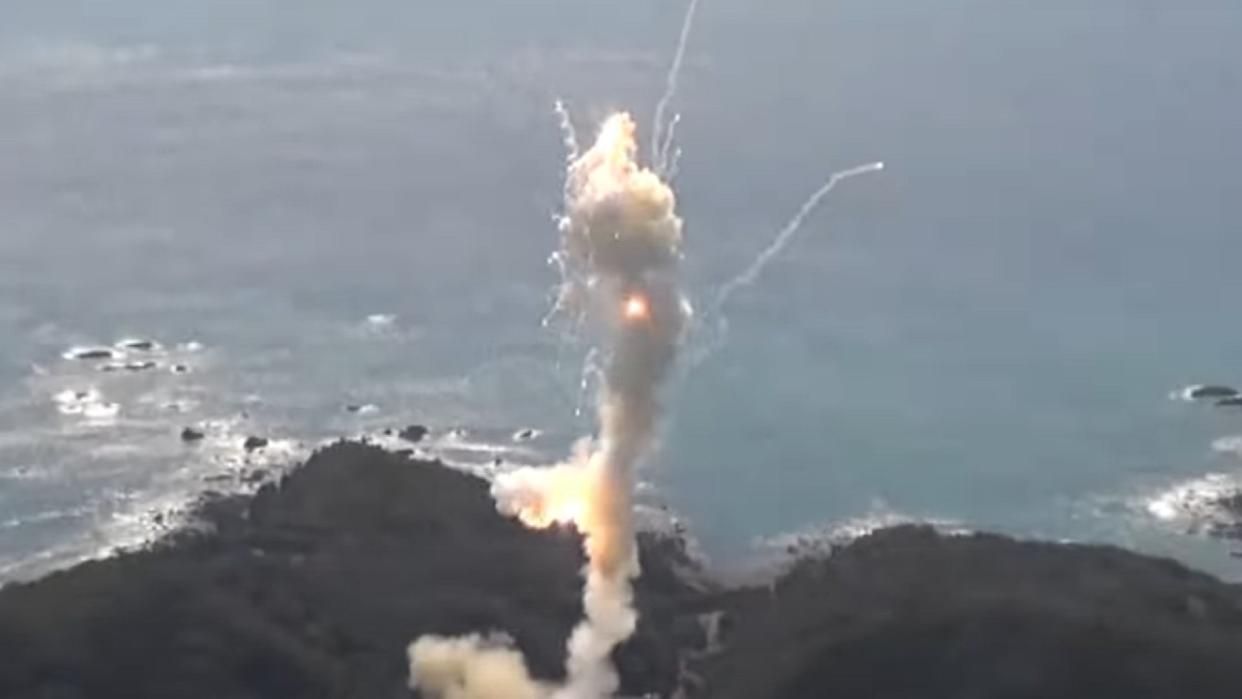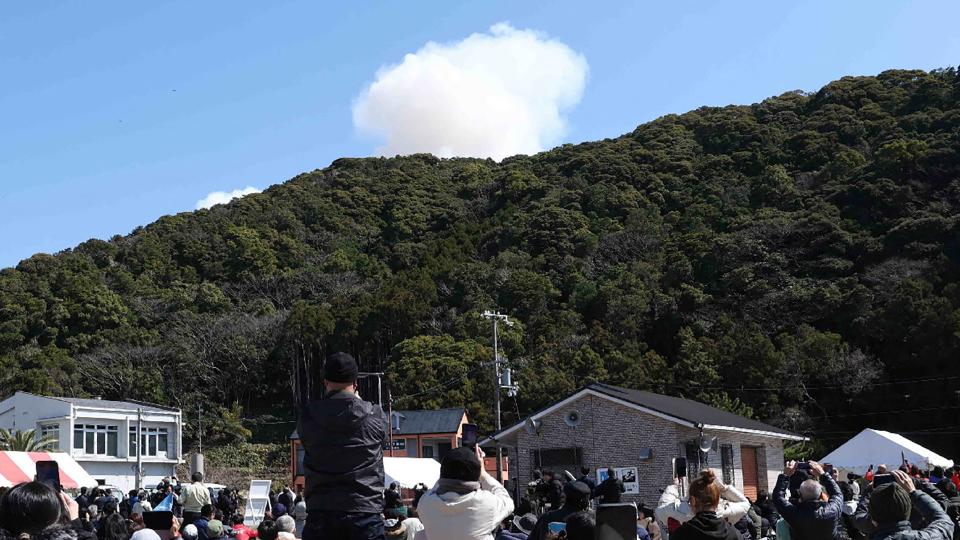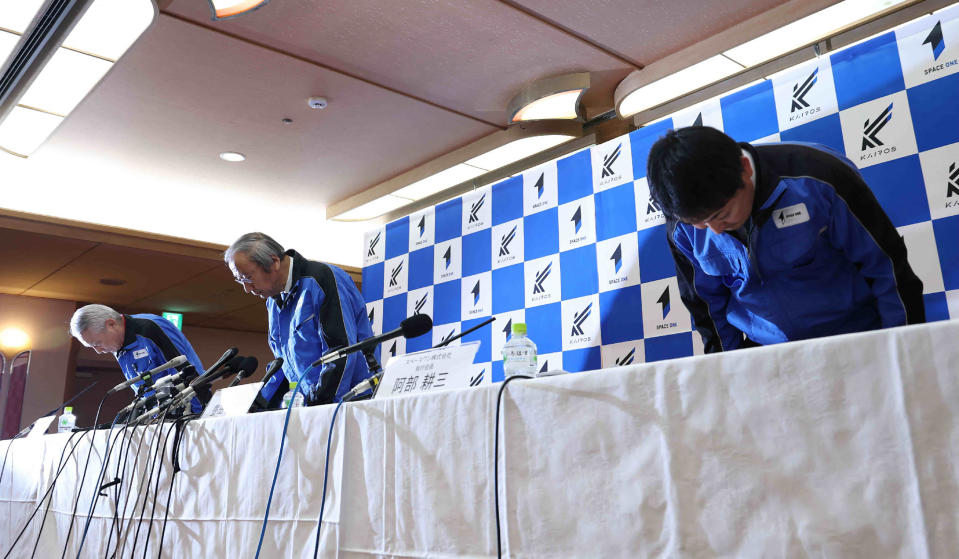Japan's 1st commercial rocket explodes shortly after liftoff (video)

A Japanese company's first orbital launch attempt ended in a dramatic failure just seconds after liftoff on Wednesday.
The 18-meter-long, four-stage Kairos solid rocket lifted off from Space Port Kii in Kushimoto, western Japan at 10:01 p.m. EDT March 12 (0201 GMT or 11:01 a.m. Japan time on March 13). The flight ended abruptly seconds after it rose off the launch pad when the flight termination system triggered, resulting in the rocket exploding.
The attempt to become the first Japanese private launch company to reach orbit resulted in debris strewn across the launch site. A post-launch press conference stated that no damage was caused and no personnel injured. Fires visible in the immediate aftermath were soon extinguished.
Related: Japan's new H3 rocket reaches orbit for 1st time (video)

"The rocket terminated the flight after judging that the achievement of its mission would be difficult," company president Masakazu Toyoda said, Reuters reported. It was not stated what triggered the autonomous flight termination system. An investigation into the cause of the failure will follow, with plans for a next launch dependent on the outcome and necessary measures being taken.
Space One's Kairos rocket consists of three solid propellant stages and a liquid propellant upper stage. It is to be able to carry payloads of up to 550 pounds (250 kilograms) to low Earth orbit. It is also designed to be highly automated.
Tokyo-based Space One was established in 2018 by major shareholders Canon Electronics, IHI Aerospace Co., Ltd., Shimizu Corporation and the Development Bank of Japan. The company has stated it aims to launch more than 20 times per year before the end of the decade.
A launch was earlier scheduled for March 9 Japan time but was scrubbed after a vessel triggered safety concerns downrange.

Launch failures of new rockets are far from rare. The SpaceX Falcon 1 is oft-cited as an example of a launcher failing during its initial launches but eventually succeeded. A range of recent new launchers have failed, including launches by American company Astra and China's Landspace.
"Rocket Lab, too, did not achieve its mission at the inaugural (Electron) flight, but it went on to launch three rockets in its second year," Toyoda said, according to Reuters. Toyoda added that Space One needs to compete with Rocket Lab.
RELATED STORIES:
— Japan's new H3 rocket reaches orbit for 1st time (video)
— Japan's 1st launch of 2024 sends spy satellite to orbit (photos)
Just hours before the Kairos failure, a Rocket Lab Electron rocket successfully launched a radar imaging satellite, notably for Japanese company Synspective. The Electron is in a similar payload range to Kairos, being capable of launching payloads of up to 660 lbs (300 kg).
The Kairos failure can also be seen as a setback for Japan's wider plans to develop its space industry. The country's space policy committee is currently working on the details of a $6.7 billion, 10-year space strategic fund to boost the country's autonomy, innovation and competitiveness in space.
These plans include improving Japan's overall launch rate through both its new H3 rocket and private companies. Another Japanese launch startup, Interstellar Technologies, aims for its first orbital launch with its Zero rocket in 2025 .

